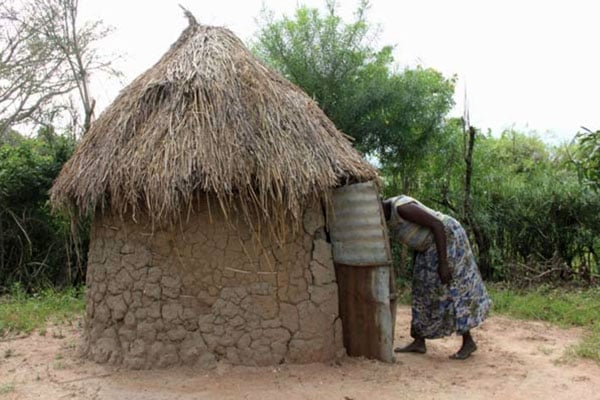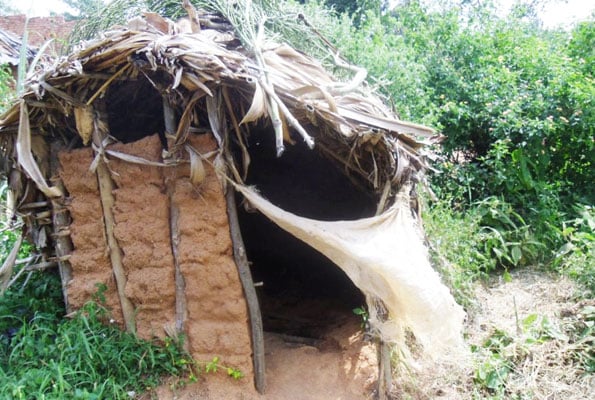Prime
One million households lack pit latrines in Acholi - report

A woman enters her pit-latrine. Photo/File
What you need to know:
- The report, jointly filed by Dr Arike Joseph (acting Nwoya District Health Officer), Mr Walter Tobina (Amuru District Biostatistician), Mr Yoweri Idiba (Gulu assistant DHO), and Dr Baifa Arwinyo, the region’s local maternity and neonatal system coordinator, also details that only 295,690 households have hand washing facilities in their homestead.
At least one million households across the Acholi Sub-region do not have improved latrines, a new report shows.
The 2022/23 joint annual health performance report for the sub-region states that of the 1,330,113 households in the area, only 270,894 households have proper toilets.
The report, jointly filed by Dr Arike Joseph (acting Nwoya District Health Officer), Mr Walter Tobina (Amuru District Biostatistician), Mr Yoweri Idiba (Gulu assistant DHO), and Dr Baifa Arwinyo, the region’s local maternity and neonatal system coordinator, also details that only 295,690 households have hand washing facilities in their homestead.
Agago, Amuru and Pader districts are listed as having the least number of improved latrines in the region.
For example, of the 253,042 households in Agago, 136,730 households do not have toilet facilities. Of the 149,869 households in Amuru, 77,305 do not have toilets, while 158,965 of the 65,910 households in Pader also lack sanitation facilities.
The report points out that many people in Acholi use open defecation, leading to more health problems.
According to the report, only 434,237 households in the region are open defecation-free.
The report also further reveals that 494,049 households in Acholi do not have safe drinking water whereas only 836,064 households have safe drinking water, with Gulu district, Nwoya and Amuru districts at great risk.
Mr Yoweri Idiba, the assistant district health officer-in-charge of environmental health in Gulu, said open defecation can lead to an outbreak of intestinal worm infections and cholera.
“Our people need to change their mindset and build modern latrines,” he said.
According to Mr Idiba, in rural settings, most of the latrines are made out of mud and sand, which makes it very vulnerable to destruction during the rainy seasons.
Mr William Onyai, the Gulu district senior health educator, urged the district health departments in the region to continuously sensitise the local community on the possible dangers of open defecation.
“District health departments should launch a crackdown operation against those failing to construct pit latrines to avoid the risk of disease outbreak and sensitize the community about the possible dangers of open defecation,” Mr Onyai said.
Mr Apollo Kagwa Okello, the Amuru District secretary for health, said some households are without pit latrines because of the traditional mindset.
“Some people want to live in the past ways of our grandfathers whereby they used to have no latrines and defecate in the bushes; this is very wrong,” he said.




